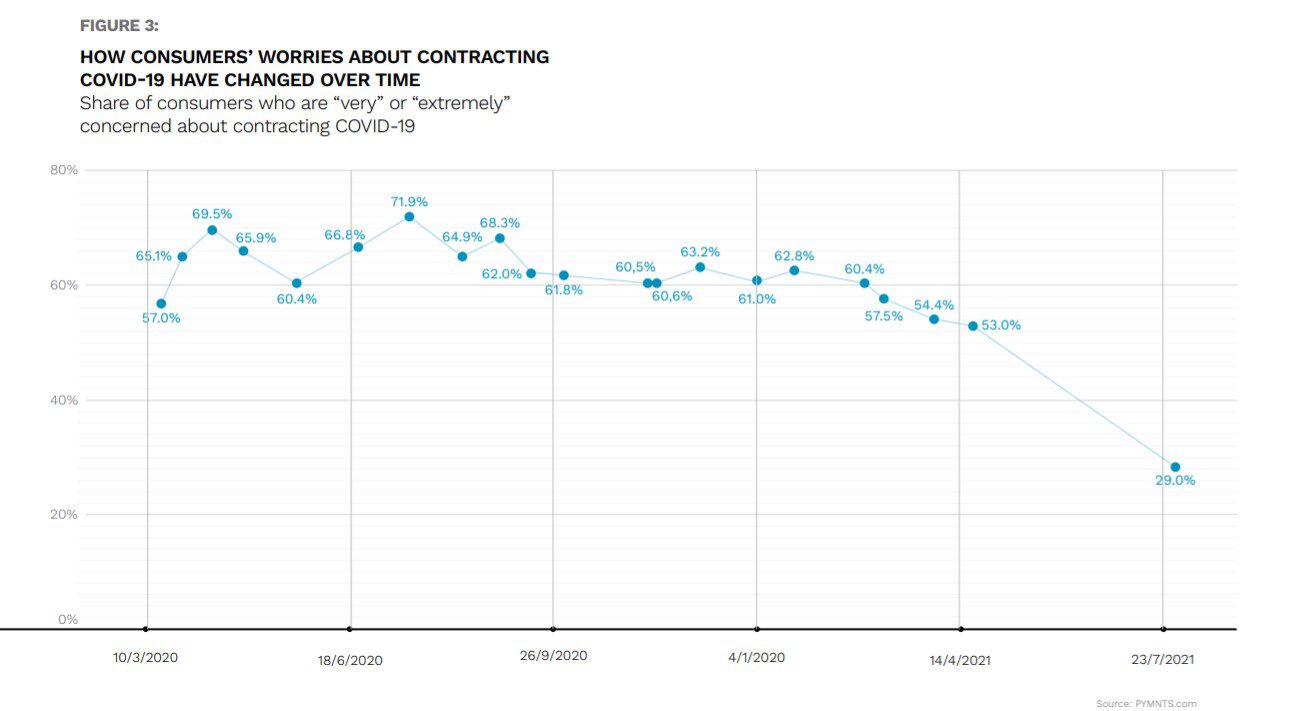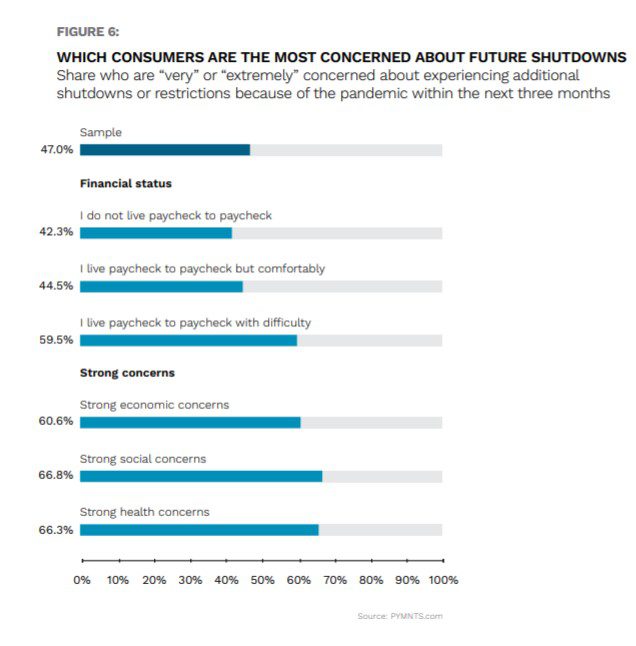The Pandemic at 18 Months: Economic and Lockdown Fears Are Eclipsing the Contagion

Across 18 months and 12 studies surveying more than 24,000 U.S. consumers, PYMNTS’ Pandenomics report series has tracked the arc of consumer sentiment, from early months when fear of contracting COVID-19 was topmost, to the present moment, where things have flipped.
The latest installment in PYMNTS Pandenomics survey series, The Post-Pandemic Consumer At 18 Months: Spending Now, Worrying Later, finds economic fears displacing disease worries, noting that “the economy is now consumers’ top concern regarding the pandemic’s impact on their lives, with 62 percent saying they are ‘very’ or ‘extremely’ worried about the economic effects. Just 48 percent express the same level of worry about their health.”
Vaccines get the collective nod for turning those figures around.
Per the new Pandenomics, “Three times as many consumers are now vaccinated compared to the numbers in February, and one-third fewer say they do not plan to get vaccinated at all. As more consumers get vaccinated, the less worried they become about contracting or spreading the virus,” the study states, finding that 71 percent of U.S. adults have by now “received at least one inoculation.”

See also: The Post-Pandemic Consumer At 18 Months: Spending Now, Worrying Later
Even the Fearful Want to Go Out to Dinner
While disease fears are falling, researchers find consumers still split into essentially two camps: those who want to get back to the physical world no matter what, and those whose primary concern is around contracting COVID-19 or one of its variants.

Per The Post-Pandemic Consumer At 18 Months study, 31 percent of consumers “primarily concerned about the impact of the pandemic on their social lives” intend to frequent restaurants more often, do more shopping in grocery stores and shop in physical retail settings generally “more in the next three months than they do now.”
Among those who remain concerned about their health, the study finds that 29 percent of the health-concerned nevertheless “plan to dine out more and travel in the U.S. more in the next three months, for example, and 28 percent also plan to shop more in brick-and-mortar retail shops going forward. Therefore, it is clear that even consumers who worry about their health are no longer content to stay at home, preferring to reengage with the physical economy.”
Read: The Post-Pandemic Consumer At 18 Months: Spending Now, Worrying Later
Lurking Lockdowns Scaring Respondents
A uniquely compelling finding in the latest data is that consumers fear a return to serious lockdown living in nearly equal part to their fear of catching COVID.
“One of the key reasons consumers appear so interested in reengaging with the activities they took part in prior to March 2020 is that many also worry about the possibility of a future shutdown,” per the study, which found that 47 percent of all consumers are “very” or “extremely” concerned that they may find themselves back on lockdown in coming months.
According to The Post-Pandemic Consumer At 18 Months, 67 percent of consumers concerned about ongoing impacts to their social lives are “very” or “extremely” worried about additional shutdowns. “Among consumers worried primarily about the pandemic’s impact on their health or on the economy, 66 percent and 61 percent, respectively, worry about having to go back to sheltering in place or enduring other restrictions on their activities,” researchers found.
See: The Post-Pandemic Consumer At 18 Months: Spending Now, Worrying Later
